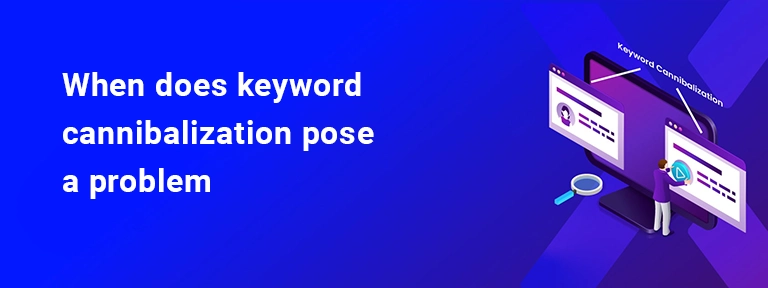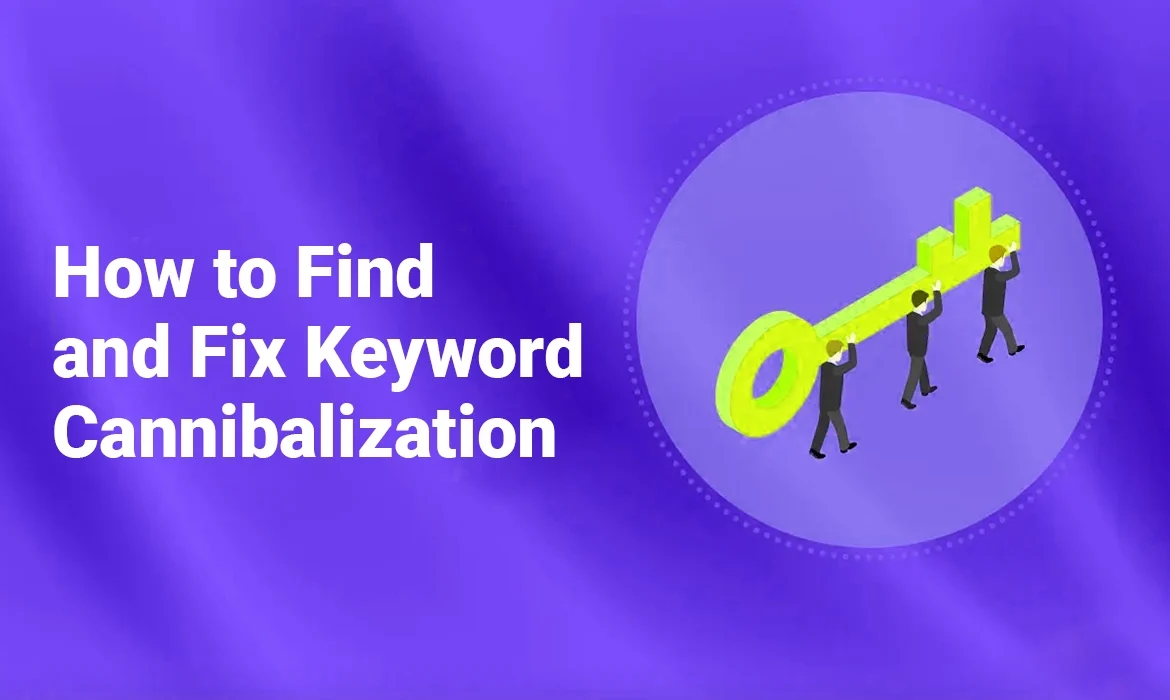Maximising Your Organic Traffic with These Advanced SEO Techniques
Businesses are facing the difficulty of standing out among a sea of competitors in a market that is becoming more and more competitive. The quality of your goods or services is no longer enough to attract attention in today’s market. Although providing excellent services is crucial, expanding your audience requires deliberate work, including the strategic use of SEO techniques. Then, among the thousands of competitors fighting for their attention, your target audience will finally pay attention.
So, how does one ascend the ladder of visibility? Everyone knows the answer is SEO. Developing an SEO strategy that is guaranteed to work is the key to becoming well-known in the commercial world. But since the SEO environment is always changing, the strategy that worked well a few years ago is probably not working as well now. Because algorithms are always changing, marketers need to be on the lookout for opportunities to dominate Search Engine Results Pages (SERPs). Because of this, companies must adopt cutting-edge strategies in addition to conventional SEO techniques to obtain a competitive edge.
Unaware of the most recent SEO strategies? Fear not; we’ve got you covered!
In this blog, we delve deep into an array of advanced SEO strategies that, when implemented, are bound to propel your organic traffic to new heights.
Optimise Your Page For Mobile

Mobile devices contribute to about half of the internet’s traffic, emphasising the importance of ensuring your website is mobile-friendly. Neglecting mobile optimization can significantly hamper your business opportunities. Google’s adoption of a mobile-first approach underscores the need for responsive web design, where the mobile version is prioritised for indexing and ranking.
Beyond SEO considerations, responsive web design offers numerous advantages. It simplifies navigation, providing users with a seamless experience and encouraging prolonged engagement. Mobile-optimised sites also boast faster loading times, enhancing the overall customer experience.
Prioritising responsibility fosters a meticulous examination of your website’s user experience and content, helping you identify and address potential issues like duplicate content that could harm your SEO efforts.
Moreover, responsive design facilitates social sharing, as engaging pages naturally prompt users to share within their networks. This organic word-of-mouth promotion often proves more effective than paid marketing campaigns. In essence, embracing responsive web design is not just a technical necessity but a strategic move that positively impacts user satisfaction, SEO performance, and overall business success.
Now that we’ve recognized the importance of mobile-friendly websites, let’s explore key considerations for their design.
While incorporating images is essential for enhancing visual appeal, it’s crucial to compress them to prevent extended loading times and high bounce rates. Opt for file formats like AVIF, JPEG 2000, and WebP, as they allow smaller file sizes. Lazy loading, where images load when users scroll, is also worth considering.
Choose HTML5 over Adobe Flash for animations since Flash lacks mobile device support. HTML5 offers comparable capabilities without relying on browser plugins.
Before going live, assess your website’s mobile-friendliness using tools like Google’s Mobile-Friendly Test. This tool provides a detailed analysis, visualising your page across various devices and offering optimization tips.
Implement media queries to ensure your website adapts seamlessly to diverse screen sizes. Configure them for all device sizes, not just the most popular ones.
Leverage Accelerated Mobile Pages (AMPs) to significantly reduce page load times on mobile devices. Compared to non-AMP pages, AMP sites load nearly 85% faster, a substantial improvement.
Improve Your Page Loading Speed

Page loading speed, a decisive ranking factor across both mobile and desktop platforms, is influenced by various elements, including media files, website coding, server-side scripts, plugins, and themes. Achieving optimal speed is challenging due to these multifaceted factors, and visitors are notably unforgiving of even slight increases in load time. A mere one to three-second increase can result in a 32% higher likelihood of visitors bouncing from your page. Enhancing page speed not only boosts search rankings but also provides a satisfactory user experience, crucial for brand perception. Slow-loading websites are often perceived as unreliable and subpar by customers.
To measure your site’s speed, tools like GTmetrix, Pingdom Website Speed Test, and Google PageSpeed Insights are popular choices. Google PageSpeed Insights, particularly user-friendly, provides scores and suggestions for both mobile and desktop versions, helping you understand and improve your site’s performance.
Now, let’s explore measures to ensure your page loads instantly.
Choose your hosting solution wisely. Skimping on this decision may result in a more significant financial burden in the long term. Inexpensive hosting solutions often offer shared hosting, dividing resources among multiple websites on an overloaded server. Instead of enhancing page speed, such solutions can cause your page to slow down. Opt for reliable hosting solutions prioritising performance, and steering clear of shared hosting to safeguard your resources from being shared with other websites.
Reduce unnecessary redirects to enhance page loading speed. Each redirect lengthens the HTTP request, contributing to a slower page load. Identify and eliminate redundant and duplicate redirects to streamline the user experience.
Enable caching on your web pages to reduce load time by utilising fewer server resources. Caching can be implemented at the server level or through a caching plugin.
Minimise file sizes by minifying Javascript, HTML, and CSS. Removing unnecessary elements like white space and comments requires careful code scrutiny. Using a plugin can streamline this process.
Utilise a Content Delivery Network (CDN), a network of interconnected servers in various locations. CDNs improve page speed by reducing the distance data requests must travel between the host’s server and the browser.
Engage Your Users

Securing a prominent position in Search Engine Results Pages (SERPs) is guaranteed by cultivating user engagement on your website. Achieving this involves various strategies, and here are some effective ones.
Harness the power of video content. Our natural inclination towards visual information makes us more responsive to videos than static images. While adding videos may increase page load time, the potential reward is significant—videos can keep visitors on a page 2.6 times longer. To make this strategy effective, ensure the content you provide is valuable, addressing your visitors’ interests and pain points.
In addition to incorporating visuals, consider using micro-interactions to captivate your visitor’s attention. Enhance the overall user experience by organising content effectively, optimising site navigation, and incorporating appealing images and illustrations. Strive to deliver an unparalleled user experience that surpasses all expectations.
Build Topic Clusters

Topic clusters are sets of web pages united by content about a specific subject. This model features a central hub known as the pillar page, to which all other related content pages link. Through this interlinking, the pillar page gains authority on the topic in the eyes of search engines, achieving a higher ranking compared to other pages. This aligns with Google’s E-A-T (Experience, Expertise, Authoritativeness, Trustworthiness) benchmark. Additionally, by enhancing navigation, topic clusters contribute to an improved user experience, leading to elevated rankings.
Lay Emphasis On Voice Search Optimization

With the rising prevalence of web searches conducted through voice assistants, nearly 40% of internet users in the US now use a voice assistant at least monthly. Businesses must accord equal importance to voice search optimization alongside their other SEO techniques. The key to crafting an effective voice search optimization strategy lies in recognizing voice search as a distinct entity, not merely an extension of text search. Unlike text queries, voice queries are notably more conversational, necessitating the integration of such phrases into content organically. Furthermore, optimising your page for voice search involves targeting long-tail and question keywords. It’s time to prioritise this evolving aspect of SEO.
Utilise Structured Data

Structured data catalyses enhancing your page’s organic traffic by providing clear communication to search engines about the content or image’s context. This clarity offers search engines a better understanding of your offerings and overall website. Pages incorporating structured data become eligible for enriched search results, featuring images and stars in the featured snippet. In this way, structured data proves instrumental in outpacing competitors and significantly elevating your visibility.
Wrapping Up
The more advanced your SEO strategies become, the greater your likelihood of breaking through the noise. We trust that the techniques provided above will assist you and your team of SEO experts in crafting a comprehensive and robust SEO strategy, propelling your business to unprecedented heights of success.
How to Find and Fix Keyword Cannibalization
In the vast landscape of digital marketing and search engine optimization (SEO), one often encounters the term “keyword cannibalization.” This phenomenon occurs when multiple pages on a website compete for the same set of keywords, leading to a diluted online presence and diminished search engine rankings.
In this comprehensive guide, we will delve into the intricacies of keyword cannibalization, explore its potential pitfalls, and provide actionable strategies to identify and rectify this issue.
Understanding Keyword Cannibalization

Keyword cannibalization arises when multiple pages within a website target identical or similar keywords. This internal competition confuses search engines, making it challenging for them to determine which page is the most relevant for a particular search query. As a result, the overall ranking potential of the website is compromised, leading to decreased visibility and diminished organic traffic.
Is keyword cannibalization bad?

Keyword cannibalization, in itself, is not necessarily harmful. If two of your pages secure positions within the top three organic Search Engine Results Page (SERP) results, it doesn’t automatically mean your rankings are suffering. In fact, you’re still achieving two page 1 rankings, and your pages retain their value by occupying a significant portion of page 1 real estate.
When it comes to targeting branded terms, having multiple instances of pages ranking for the same branded keyword on your website is entirely normal. In these scenarios, there is usually no need for immediate changes or updates to your website, and such occurrences likely aren’t having adverse effects on your organic rankings.
When does keyword cannibalization pose a problem?

Keyword cannibalization becomes problematic for your website when multiple pages compete for the same keyword, resulting in one or more pages underperforming in the organic Search Engine Results Page (SERP). For instance, if you’re aiming for organic rankings on the search query “best taco recipe,” and your top two pages are positioned in the 17th and 18th slots of the organic SERP, addressing this cannibalization issue becomes crucial. In such cases, your pages may suffer from reduced click-through rates, conversions, and overall authority.
The challenge then lies in identifying every instance of cannibalization scattered across your site.
Identifying Keyword Cannibalization

Detecting keyword cannibalization on your website involves a systematic approach. Here’s a step-by-step guide to help you identify and address this issue:
Conduct a Comprehensive Keyword Analysis:
Begin by analyzing the keywords associated with each page on your website. Utilize tools like Google Analytics, Google Search Console, and third-party SEO tools to gain insights into the targeted keywords for each page.
Review Search Engine Rankings:
Examine the search engine rankings for your designated keywords. If your site has multiple pages appearing in the search results for a single query, this is a clear sign of potential keyword cannibalization.
Compare Content Relevance:
Evaluate the content on pages competing for the same keywords. If you find that the content is substantially similar or overlaps significantly, it suggests cannibalization affecting the search engine ranking potential of those pages.
Utilize SEO Tools:
Leverage specialized SEO tools to identify instances of keyword cannibalization. These tools can analyze your site’s structure and provide detailed insights into keyword usage across different pages.
Check Click-Through Rates (CTRs):
Monitor the click-through rates of pages targeting the same keywords. If you observe lower CTRs for these pages, it may indicate confusion among users and search engines regarding which page is the most relevant.
Examine Conversion Rates:
Assess the conversion rates of pages affected by keyword cannibalization. If conversions are suboptimal, it could be a result of diluted authority and unclear signals to search engines.
Implement 301 Redirects or Consolidate Content:
If you identify instances of keyword cannibalization, consider implementing 301 redirects to consolidate authority to a preferred page. Alternatively, you can merge and optimize content on the competing pages to create a comprehensive, singular resource.
Update Internal Linking:
Adjust your internal linking structure to reinforce the authority of the preferred page. Ensure that anchor text and links guide search engine crawlers toward the intended primary source of information.
Monitor and Iterate:
Regularly monitor the impact of your changes on search engine rankings, click-through rates, and conversions. Iterate and refine your approach based on the performance of the optimized pages.
Fixing Keyword Cannibalization

Addressing and fixing keyword cannibalization is essential for optimizing your website’s SEO performance. Here’s a step-by-step guide on how to effectively resolve this issue:
Option #1: Develop Fresh Content
Suppose your website currently boasts multiple pages ranking for a broad keyword such as “websites” each focusing on a distinct website type. In this scenario, it’s advisable to create a new landing or category page to consolidate all website-related content. This new authoritative page serves as a gateway to specific website types, allowing you to target broader keywords like “websites” while emphasizing longer-tail keywords such as “best websites for blogging”
Option #2: Merge Similar Content
To mitigate cannibalization, consider merging pages with closely aligned content. For instance, if you have two blogs on keyword cannibalization—one addressing identification and the other providing solutions—merging them into a cohesive piece can prevent cannibalization and enhance rankings for both broad and long-tail terms.
Option #3: Optimize Internal Linking
Crafting a strategic internal linking structure is crucial for guiding both users and search engines through your site. By emphasizing important pages through frequent linking, you establish a clear hierarchy. This strategy, coupled with optimized anchor text, aids in distinguishing between similar pages, minimizing cannibalization risks.
Option #4: Explore New Keywords
If two pages with unique content experience cannibalization, conduct additional keyword research to uncover fresh, valuable terms for optimization. This approach ensures differentiation in the targeted keywords for each page.
Conclusion:
Keyword cannibalization can significantly hinder a website’s SEO performance, but with a proactive approach and strategic adjustments, it can be effectively addressed. By understanding the intricacies of this phenomenon, conducting thorough analyses, and implementing corrective measures, digital marketers and website owners can optimize their online presence, enhance search engine rankings, and drive organic traffic to their most valuable pages. Stay vigilant, regularly audit your site’s content, and ensure that your SEO strategy aligns with best practices to prevent keyword cannibalization from impeding your online success.
Pros and Cons of Offshore Agency Vs Local Digital Marketing vendors
Time is equivalent to money, a saying that, though cliched, carries immense value. As a marketer, you recognize the significance of time spent on non-core processes, prompting consideration of outsourcing to third parties. The critical decision now lies in choosing between local agencies and offshore vendors. Whether driven by cost-cutting, enhanced support, or seeking niche expertise in digital marketing or IT processes like web and app development, you play a pivotal role in this choice.
Our offshore digital marketing company aims to provide the insights necessary for selecting the optimal outsourcing model. Whether opting for onshoring or offshoring, we’ve assisted numerous businesses in finding the right model for their unique needs. Our goal is to guide you through this decision-making process, ensuring you understand the impact on your business goals. Stay tuned, and by the end of this blog, you’ll be equipped to make an informed decision tailored to your requirements.
Pros of Opting for Local Vendors for Your Outsourcing Needs

In essence, outsourcing involves delegating non-core processes to external entities, and in certain scenarios, choosing local vendors can offer distinct advantages. Here are some clear benefits of entrusting your digital marketing requirements to local vendors:
1. Ways to Avoid Cultural Misalignment
To mitigate cultural misalignment, especially in projects targeting specific cultures or societal groups, a nuanced understanding of the culture is imperative. Offshore agencies may encounter challenges stemming from cultural differences within a global team. These challenges include language barriers, diverse holidays, support issues across time zones, and variations in accent and tone. To delve deeper into why and when local agencies might be a superior choice, let’s explore these cultural nuances.
Engaging a digital marketing agency in your country brings a familiarity with the language, slang, current events, idioms, history, society, and humor relevant to your target audience. This profound understanding allows the agency to enhance your PPC ad campaigns or search campaigns effectively. Individuals from different cultures may struggle to grasp these intricacies. If your brand’s tone aligns closely with your unique culture, it becomes crucial to have professionals who not only comprehend but also live in the same environment.
In the absence of a marketing person capable of educating an offshore worker on your cultural preferences, opting for a local vendor is advisable. A local vendor inherently understands how your customers behave and their preferences.
Nevertheless, some digital marketing agencies from other countries adeptly address these concerns. It is prudent to communicate with offshore partners you are considering working with to ensure they possess the capability to navigate and incorporate these cultural intricacies effectively.
2. Upholding Legal Compliance and Safeguarding Confidentiality in Government Projects
A significant determinant in a company’s choice between onshore or local vendors for fulfilling its digital marketing requirements is the assurance of adherence to statutory laws, guidelines, and regulations within the company’s jurisdiction.
For example, the USA imposes a set of legal prerequisites that must be satisfied when outsourcing to offshore vendors, including:
- Data Privacy: Ensuring alignment with the Health Insurance Portability and Accountability Act (HIPAA) and the California Consumer Privacy Act (CCPA).
- Cybersecurity: Enforcing cybersecurity regulations such as the NIST Cybersecurity Framework and industry-specific standards.
- Guaranteeing thorough legal and regulatory compliance concerning contractual obligations, deliverables, liabilities, responsibilities, and dispute resolution mechanisms.
Prior to vendor selection, careful consideration of these factors is essential. Opting for an onshore vendor familiar with local laws is advisable, although offshore agencies can also comply with legal requirements. Ultimately, the decision rests with you.
Moreover, certain Government projects involve confidential information that cannot be entrusted to offshore agencies. In such instances, it is prudent to engage with local or onshore vendors to ensure the confidentiality and security of sensitive project details.
3. Uncommon and Short-Term Outsourcing Requirements
If your outsourcing needs are infrequent or involve short-term tasks, opting for an onshore vendor may prove to be the optimal choice. In these instances, collaborating with an offshore vendor can consume a significant amount of time.
4. Niche Expertise Requiring In-Person Meetings
Despite the rapid growth of technology and efficient digital communication, in-person meetings retain their value, especially when specialized expertise is necessary. Certain aspects of your projects may demand an in-depth understanding of your business, making local agencies a wise choice for real-time collaboration. This approach is beneficial for clients who prefer to personally engage with the professionals handling their campaigns.
5. Comparable Costs to Offshoring
While many business owners turn to offshore agencies for their cost advantages, finding a local digital marketing agency that offers expert services at similar prices can be advantageous. This allows you to outsource your needs locally and redirect your focus towards core competencies that demand your full attention. Our research enables you to compare the prices of digital marketing services from both local vendors and offshore locations, empowering you to make an informed decision.
When to Opt for Offshore Digital Marketing Agencies

Exploring scenarios and factors that make outsourcing to offshore agencies a preferable choice:
- Profitability as the Primary Goal:
- Companies prioritize cost efficiency when outsourcing their IT needs. Countries like India, China, and the Philippines offer access to highly skilled talent at lower costs due to their lower cost of living, resulting in competitive remuneration.
- Lack of Niche Talent in Local Agencies:
- When local agencies lack the necessary experts or resources for the required services, or if the available talent is cost-prohibitive, offshore outsourcing becomes a lucrative option.
- Countries such as India, China, Ukraine, and Vietnam boast large pools of skilled and tech-savvy professionals, with Vietnam having 56% of resourceful young professionals (20-29 years).
- Utilizing Extended Work Hours:
- Offshoring becomes advantageous if you seek continuous business processes, operating even after business hours in your local time zone. The “follow the Sun” paradigm allows for around-the-clock productivity.
- With an offshore agency starting their workday when it ends in your location, deliverables or updates can be ready for review and implementation by the time you resume work.
- Access to Global Expansion Expertise:
- Offshore agencies bring a broader perspective to their work, often having skilled resources from diverse locations and backgrounds. These resources can offer fresh insights aligned with your business goals and processes.
- International Market Exposure:
- When clients’ needs surpass the capabilities of local digital marketing vendors, partnering with offshore outsourcing agencies is advisable. These agencies possess a better understanding of international markets, having worked with clients from various countries and continents.
What’s Next? Guidelines for Choosing the Perfect Outsourcing Partner

To conclude, achieving a successful outsourcing decision involves gaining clarity on the following points:
Understand Your Priorities:
- Identify your primary considerations, whether it’s cost, specific skills, or a combination of both. Clearly define where you can make compromises and areas where compromise is non-negotiable.
Research Potential Vendors/Agencies:
- Conduct thorough research on potential vendors or agencies. Explore reviews and testimonials on reputable platforms such as Clutch to obtain genuine insights and prevent potential discrepancies in expectations.
Evaluate Areas of Expertise:
- Recognize your unique needs and requirements. Before finalizing your decision, assign test projects to the agencies under consideration. This practical approach allows you to assess how effectively they can deliver the specific outcomes you seek.
Conclusion
In conclusion, the choice between offshore agencies and local digital marketing vendors involves weighing distinct advantages and challenges. Offshore agencies offer cost savings and global talent but may face cultural and legal complexities. Local vendors provide proximity and cultural understanding but can be costlier and may lack niche expertise. The decision hinges on understanding priorities, thorough research, and practical evaluations. Striking the right balance aligns outsourcing choices with specific business needs, ensuring a strategic and effective partnership for sustained success.





